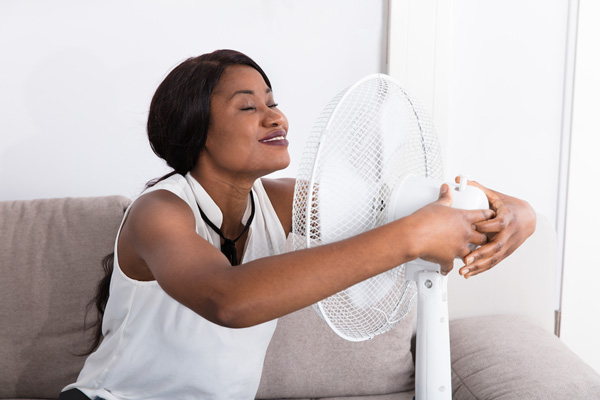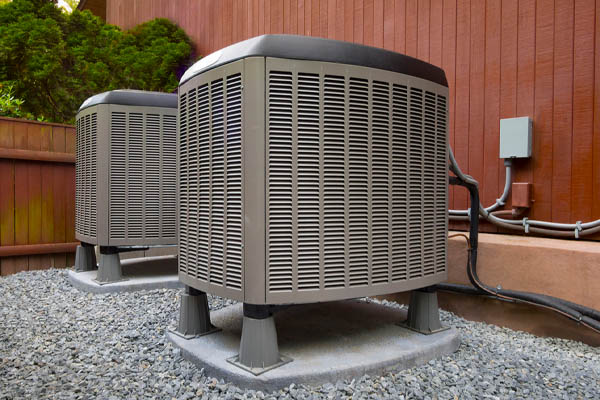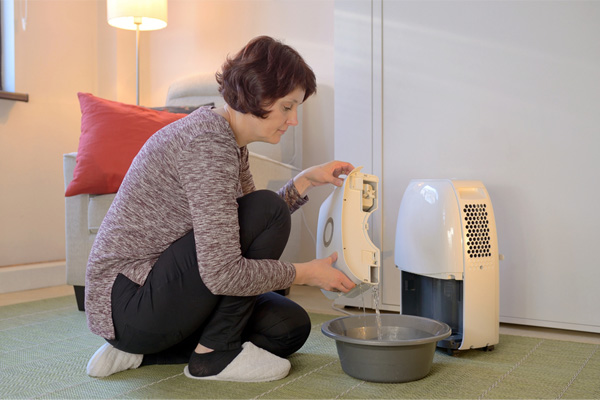Contents
- 1 What Is Indoor Air Quality?
- 2 How High Humidity Levels Impact Your Indoor Air Quality
- 3 Signs Of High Humidity In Your Home
- 4 The Effects Of High Humidity
- 5 How Can My Air Conditioner Remove Humidity From My Home?
- 6 Dehumidifier Vs. Air Conditioner: Which Works Best?
- 7 Your Air Conditioner & Humidity
- 8 Call Wilcox Energy For Expert HVAC Services

When you live in an area that has damp or extremely high temperatures, then you know what humidity feels like. The damp and muggy weather leaves you feeling uncomfortable. Having high humidity levels outside can be bad. However, things can be even worse when you experience the same inside your home.
An HVAC system helps solve your home humidity problem. This article will help you assess what might be causing the problem. There are also a few tips on how to remove humidity and achieve optimum levels for your home.
What Is Indoor Air Quality?

The quality of air in and around your home, office, or any other structure translates to the indoor air quality. It also refers to how they affect the occupants’ health and well-being. A place that has poor air quality suffers from having high levels of pollutants, such as animal dander, dust, and lint in the air. These contaminants in the air can cause health problems like allergies, flu-like symptoms, and breathing troubles. Prolonged exposure to these indoor air pollutants can lead to respiratory illnesses as well. Hence, you must have healthy indoor air quality at all times.
How High Humidity Levels Impact Your Indoor Air Quality
One of the most significant contributors to poor indoor air quality is high humidity as per the Environmental Protection Agency. The reason is that the moisture in the air encourages mold and bacteria to grow. These can invade the carpet, walls, and other absorbent surfaces around your home. Molds and mildew also release harmful spores. When an individual inhales or comes in contact with these spores, it can lead to symptoms like lung infections, skin rashes, headaches, and eye irritation. Moreover, an excessively humid building becomes more susceptible to allergens like dust mites.
Signs Of High Humidity In Your Home

Your home may still suffer from having high humidity even when you have an AC or HVAC system switched on. Some of the signs that humidity is on the rise in your house include:
- You feel clammy, and you continue to sweat despite having the AC on
- Difficulty breathing
- Your allergies are triggered
- You have fogged up windows, and the interior glass is layered with condensation
- Some parts of your ceilings and walls look damp
- The air in your house has a musty smell
- Exterior and interior wood around your home are starting to rot
- Your door and window frames have cracks
The Effects Of High Humidity
High humidity doesn’t only affect your health. It can also damage your home. Having large amounts of moisture in the air can rot the wood around your house. This can then lead to structural damage. The rotten wood creates small holes where cockroaches, rats, and termites can enter. Even your door and window frames will be affected. High humidity can leave cracks around them. It can also destroy porous items like clothes, books, and carpets.
How Can My Air Conditioner Remove Humidity From My Home?

Your cooling system doesn’t only supply conditioned air into your home. It also draws humid air out during the cooling cycle. The evaporator coil in your system condenses the moisture in the air and turns it into liquid. The water is then removed through the drain tubing. An AC that is in tiptop shape ensures that you maintain 30 to 50 percent humidity in your home. This is the ideal home humidity level, according to the EPA. Anything lower or higher can mean you have AC humidity issues.
Dehumidifier Vs. Air Conditioner: Which Works Best?

A dehumidifier works by removing the moisture in the air. Whereas, an air conditioning system supplies your home with cold air while pulling out hot, humid air. Many often wonder which one of these two works best when it comes to removing humidity. You can use a portable dehumidifier to extract moisture in one room in your house. However, an HVAC unit can cover larger areas. Your AC is also equipped with an air filtration system that keeps your indoor air cleaner. When you want to use a dehumidifier with your AC, a whole-house dehumidifier is recommended. It can work hand-in-hand with your HVAC system in pulling out hot, moist air and keeping your house cool and comfy.
Your Air Conditioner & Humidity
An air conditioner can help alleviate your humidity problems at home. It extracts the moisture in the air and is released outside correctly to prevent any water damages. You can also use a whole-house dehumidifier to ensure that you achieve the EPA-recommended humidity levels. Make sure that your HVAC system receives regular attention and tune-ups. A professional will inspect your unit to ensure that the ducts, air filters, evaporation coils, and all other parts are in excellent working condition. An HVAC expert can also help you find the necessary solutions to your AC humidity problems.
Call Wilcox Energy For Expert HVAC Services

Wilcox Energy provides excellent and affordable heating and cooling services in Middlesex County, Connecticut. Rest assured that we only hire licensed and NATE certified technicians who have the knowledge and experience to service your system correctly. Equipped with the right skills and tools, our experts conduct superior HVAC tune-ups, repairs, installations, and replacements.
When you require maintenance services to improve your comfort and energy efficiency while reducing your home cooling costs, call Wilcox Energy. We also ensure you have high indoor air quality. Likewise, if you need an HVAC replacement system, we can help you find a suitable make and model that will fit your needs and budget. All of our work is backed with a warranty to make sure you are satisfied with the job. Book an AC tune-up or service appointment by giving Wilcox Energy a call today. We offer free, in-home estimates.
For more information about our HVAC services, be sure to contact Wilcox Energy. You can click here to contact us, or you can call us at (860) 399-6218 to find out more. We offer a full line of heating and cooling repairs, maintenance services, and installations.
